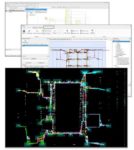You are currently viewing SemiWiki as a guest which gives you limited access to the site. To view blog comments and experience other SemiWiki features you must be a registered member. Registration is fast, simple, and absolutely free so please,
join our community today!
WP_Term Object
(
[term_id] => 497
[name] => Arteris
[slug] => arteris
[term_group] => 0
[term_taxonomy_id] => 497
[taxonomy] => category
[description] =>
[parent] => 178
[count] => 151
[filter] => raw
[cat_ID] => 497
[category_count] => 151
[category_description] =>
[cat_name] => Arteris
[category_nicename] => arteris
[category_parent] => 178
[is_post] =>
)

WP_Term Object
(
[term_id] => 497
[name] => Arteris
[slug] => arteris
[term_group] => 0
[term_taxonomy_id] => 497
[taxonomy] => category
[description] =>
[parent] => 178
[count] => 151
[filter] => raw
[cat_ID] => 497
[category_count] => 151
[category_description] =>
[cat_name] => Arteris
[category_nicename] => arteris
[category_parent] => 178
[is_post] =>
)
At the recent RISC-V Summit, the very last session was a panel about chiplets called Chiplets in the RISC-V Ecosystem. It was moderated by Calista Redmond, the CEO of RISC-V International. The panelists were:
- Laurent Moll, COO of Arteris
- Aniket Saha, VP of Product Management of Tenstorrent
- Dale Greenley, VP of Engineering of Ventana
…
Read More
First, a quick definition. By “structured assembly,” I mean the collection of tools to support IP packaging with standardized interfaces, SoC integration based on those IPs together with bus fabric and other connectivity hookups, register definition and management in support of hardware/software interface definition, … Read More
RISC-V tends to generate excitement over the possibilities for the processor core, any custom instruction extensions, and its attached memory subsystem. Those are all necessary steps to obtaining system-level performance. But is that attention sufficient? Architects who have ventured into larger system-on-chip (SoC) … Read More
Designers have many paths for differentiating RISC-V solutions. One path launches into various RISC-V core customizations and extensions per the specification. Another focuses on selecting and assembling IP blocks in a complete system-on-chip (SoC) design around one or more RISC-V cores. A third is emerging: interconnecting… Read More
I met up with Andy Nightingale, VP Product Marketing and Michal Siwinski, Chief Marketing Officer of Arteris at #60DAC for an update on their system IP company dealing with SoCs and chiplet-based designs. SemiWiki has been blogging about Arteris since 2011, and the company has grown enough in those 12 years to have an IPO, see their… Read More
I wrote earlier about managing service-level risk in SoC design, since the minimum service level a system can guarantee under realistic traffic is critical to OEM guarantees of dependable system performance. An ABS design which might get bogged down in traffic under only 0.1% of scenarios is of no use to anyone. That said, meeting… Read More
Discussion on design metrics tends to revolve around power, performance, safety, and security. All of these are important, but there is an additional performance objective a product must meet defined by a minimum service level agreement (SLA). A printer display may work fine most of the time yet will intermittently corrupt the… Read More
“Strategy” is a word sometimes used loosely to lend an aura of visionary thinking, but in this context, it has a very concrete meaning. Without a strategy, you may be stuck with decisions you made on a first-generation design when implementing follow-on designs. Or face major rework to correct for issues you hadn’t foreseen. Making… Read More
In the march to more capable, faster, smaller, and lower power systems, Moore’s Law gave software a free ride for over 30 years or so purely on semiconductor process evolution. Compute hardware delivered improved performance/area/power metrics every year, allowing software to expand in complexity and deliver more capability… Read More
I wrote last month about physically aware NoC design, so you shouldn’t be surprised that Arteris is now offering exactly that capability 😊. First, a quick recap on why physical awareness is important, especially below 16nm. Today, between the top level and subsystems a state-of-art SoC may contain anywhere from five to twenty … Read More











